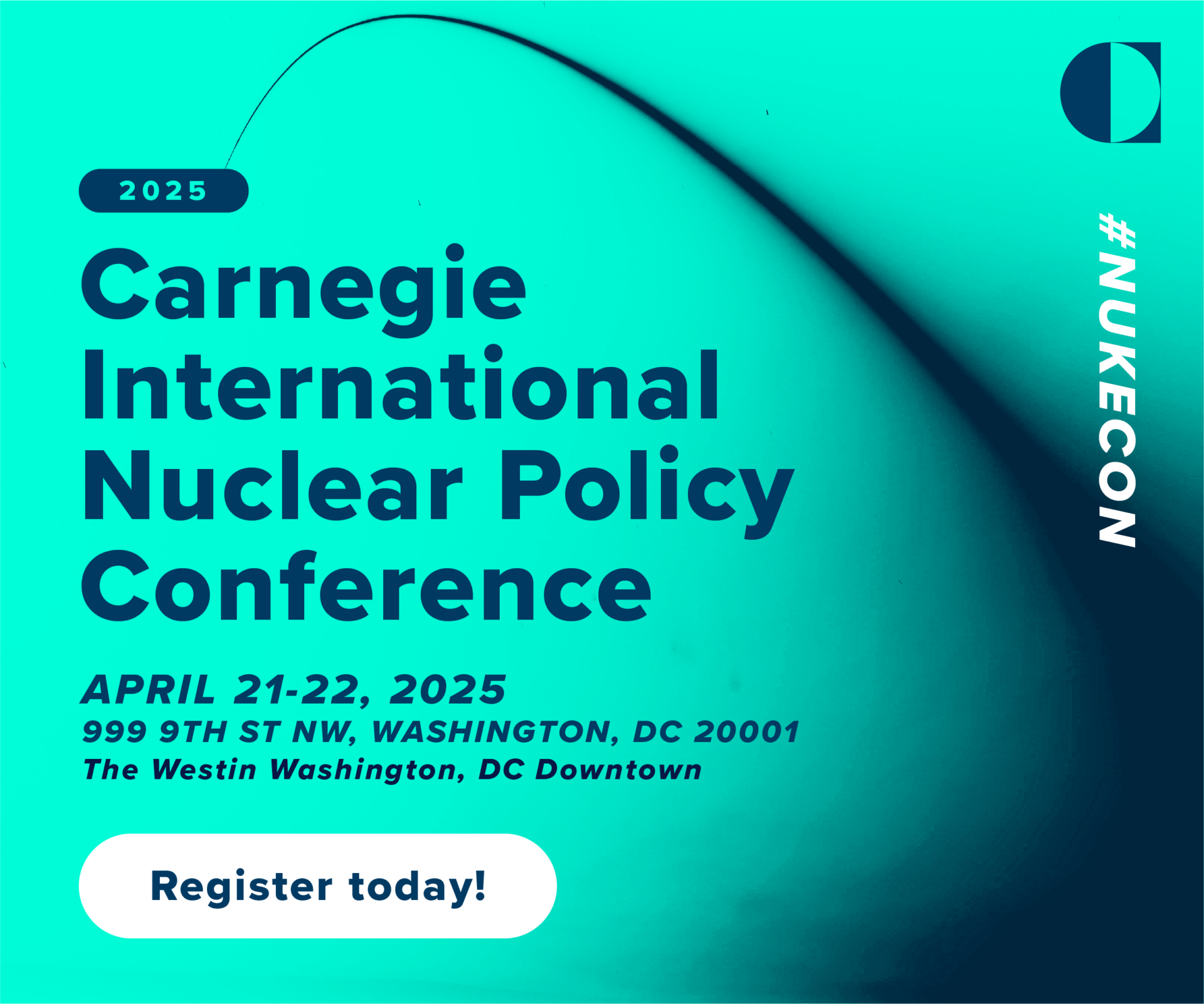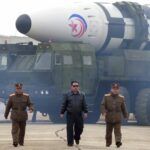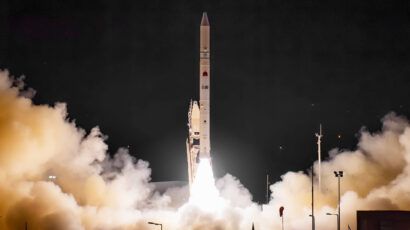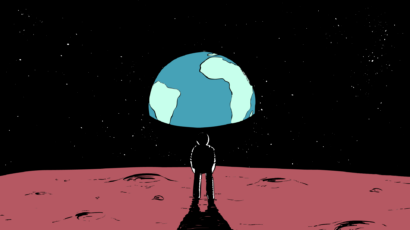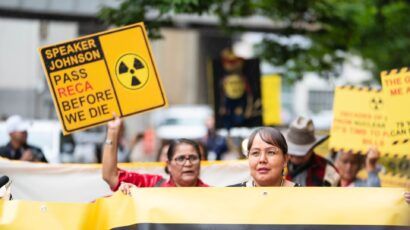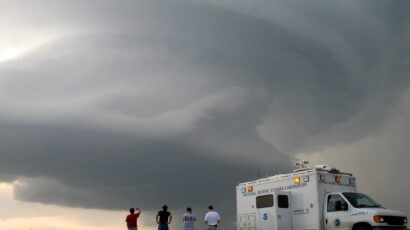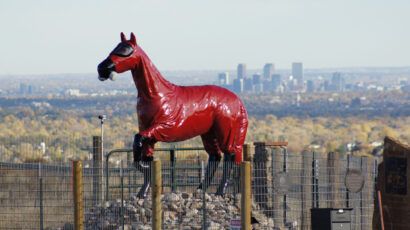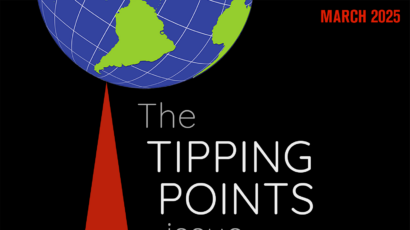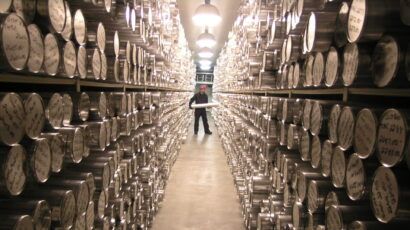The eight best Bulletin magazine articles of 2022
By Dan Drollette Jr | December 26, 2022
 India and Pakistan try to face each other down in the elaborate daily “beating retreat ceremony” at the Wagah Border between the two countries. Their rivalry is the subject of the March Bulletin article, “Global and regional confrontation in South and Southeast Asia.” Image courtesy of Gargisharma13/Wikimedia under Creative Commons Attribution-ShareAlike 4.0 International
India and Pakistan try to face each other down in the elaborate daily “beating retreat ceremony” at the Wagah Border between the two countries. Their rivalry is the subject of the March Bulletin article, “Global and regional confrontation in South and Southeast Asia.” Image courtesy of Gargisharma13/Wikimedia under Creative Commons Attribution-ShareAlike 4.0 International
The Peloponnesian War. Bitcoins. Space. Social shaming. Microchips in humans. Wood bioenergy. The 30th anniversary of “The End of History.”
This diverse list of topics has at least one thing in common: Each was the subject of an article in the behind-a-paywall, bi-monthly magazine of the Bulletin of the Atomic Scientists this year. And each made the short-list of the Bulletin’s best magazine coverage of 2022.
So that non-subscribers can see why these pieces were chosen, the Bulletin made the articles below completely free, in their entirety, for the next few weeks. (If you want to read the rest of the year’s premium content—and be sure of never missing out again—you can always subscribe to the bi-monthly magazine.)
Of course, some readers may have different Bulletin magazine stories that they think are deserving of the word “best.” If you have a favorite you think is missing from this list, then send your nominee to [email protected], and put the words “Best Magazine” in the subject line, along with any comments you care to make. We’ll publish the results later—and you may get the glory of seeing your comments on the electronic page.
How bitcoin makes burning fossil fuel more profitable than ever
—Jessica McKenzie
As long as burning fossil fuel to mine bitcoins makes money, people and companies will do it. And fossil fuel companies will try to use that to prop up their ailing industry. The fossil-fuel-to-bitcoin pipeline is getting shorter and shorter, and associated greenhouse gas emissions are climbing.
Microchips in humans: consumer-friendly app, or new frontier in surveillance?
—Ahmed Banafa
Self-described “bio-hackers” are voluntarily injecting radio frequency identification chips under the skin below the thumb, which allows them to pay for purchases by just waving their bare hand over the scanner at a checkout counter. Harmless whim, or first step toward being literally under the thumb of the surveillance state?
Interview with Francis Fukuyama: “It’s a different kind of world we’re living in now”
—Dan Drollette Jr.
There are a lot of authoritarian governments on the move, and they’re consolidating power. But over the long term, things look brighter—if we have the willpower, says the author of the 1990s bestseller The End of History.
Sanctioning Russia’s oligarchs—with shame
—Brooke Harrington
The last few months have brought forth a new form of sanctions strategy, one aimed at stigmatizing the individuals closest to Putin’s regime in hopes of shattering elite support and encouraging revolt. These sanctions, which have led to freezing and seizures of Russian oligarchs’ assets in the West, have prompted the first murmurs of public dissent by Russian oligarchs in nearly two decades.
China and the United States: It’s a Cold War, but don’t panic
—Robert Daly
In November 2019, Henry Kissinger warned that the United States and China were in “the foothills of a Cold War” that could end in a conflict worse than World War II. Two years, one pandemic, and a change of American administrations later, the relationship is above the foothills and nearing the summit. Cold War framing now seems inevitable. But it has, at least, the virtue of focusing the world’s attention.
Does wood bioenergy help or harm the climate?
—John Sterman, William Moomaw, Juliette N. Rooney-Varga, Lori Siegel
To avoid the worst harms from climate change, we must not only keep the vast majority of the remaining fossil carbon in the ground; we also need to keep it in the forests.
Interview with Graham Allison: Are the United States and China charging into Thucydides’s trap?
—John Mecklin
In his classic History of the Peloponnesian War, the Greek historian Thucydides wrote: “It was the rise of Athens and the fear that this instilled in Sparta that made war inevitable.” In his critically acclaimed 2017 book, Destined for War: Can America and China Escape Thucydides’s Trap, eminent international security analyst Graham Allison explored this phenomenon today when, as in ancient Greece, a rising power threatens to displace a ruling one.
Cis-lunar space and the security dilemma
—Michael Byers, Aaron Boley
Developing the moon and the space around it in a sustainable way requires foresight, planning, and cooperation. Space must be recognized as an environment that is worth preserving, and as one in which fast-paced alterations can have unintended consequences.
Together, we make the world safer.
The Bulletin elevates expert voices above the noise. But as an independent nonprofit organization, our operations depend on the support of readers like you. Help us continue to deliver quality journalism that holds leaders accountable. Your support of our work at any level is important. In return, we promise our coverage will be understandable, influential, vigilant, solution-oriented, and fair-minded. Together we can make a difference.
Keywords: Bitcoin, China, Russia, Ukraine, bioenergy, lunar space, sanctions, surveillance
Topics: Analysis
